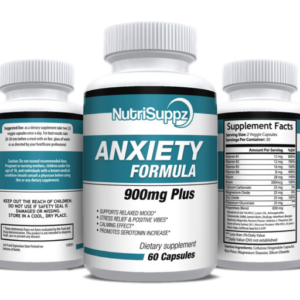03 Sep Managing Urinary Urgency: Is Anxiety the Culprit?
Managing Urinary Urgency: Is Anxiety the Culprit?
At Nutrisuppz, we understand that health issues can often be interconnected in complex ways. One such intersection is between urinary urgency and anxiety. If you’re experiencing frequent, intense urges to urinate and suspect that anxiety might be playing a role, this blog post aims to clarify the connection and offer insights on managing these symptoms.
What is Urinary Urgency?
Urinary urgency is a condition characterized by a sudden, compelling need to urinate that can be difficult to control. It often occurs along with other symptoms such as increased frequency of urination and, in some cases, discomfort or pain. While urinary urgency can be caused by various factors, including infections, bladder inflammation, or other medical conditions, it’s essential to explore all potential contributors, including psychological factors.
The Role of Anxiety in Urinary Urgency
Anxiety is a psychological state marked by excessive worry, fear, or apprehension. When the body experiences anxiety, it activates the stress response, which can influence various physiological functions. One of these functions is bladder control.
During periods of high anxiety, the body’s “fight-or-flight” response is triggered, leading to a range of physical reactions, including increased heart rate and heightened awareness of bodily sensations. This heightened state of alertness can extend to the bladder, making you more aware of, or sensitive to, the urge to urinate. Additionally, anxiety can lead to muscle tension, including in the pelvic area, which may contribute to the sensation of urgency.
Symptoms of Anxiety-Related Urinary Urgency
When anxiety affects urinary urgency, you might experience:
- Frequent and intense urges to urinate, often occurring with little warning.
- Discomfort or pressure in the lower abdomen.
- Difficulty distinguishing between a genuine need to urinate and anxiety-induced sensations.
These symptoms can be distressing and may create a cycle of worry, further exacerbating anxiety and urinary urgency.
Managing Urinary Urgency and Anxiety
Effectively managing anxiety-related urinary urgency involves addressing both the physical and psychological aspects of the condition. Here are some strategies that might help:
Stress Management Techniques: Incorporating relaxation techniques such as deep breathing exercises, mindfulness, and meditation can help reduce anxiety levels. These practices may also alleviate the associated physical symptoms, including urinary urgency.
Cognitive-Behavioral Therapy (CBT): CBT is a therapeutic approach that helps individuals address and manage anxiety by changing negative thought patterns and behaviors. It can be particularly effective in reducing the impact of anxiety on various aspects of life, including urinary urgency.
Lifestyle Changes: Maintaining a healthy lifestyle with regular physical activity, balanced nutrition, and adequate hydration can support overall well-being and help manage stress levels. Additionally, avoiding irritants such as caffeine and alcohol may reduce bladder sensitivity.
Pelvic Floor Exercises: Engaging in pelvic floor exercises or physical therapy can help strengthen the muscles around the bladder and improve bladder control.
Medical Consultation: If symptoms persist, consulting with a healthcare provider is essential. They can help rule out underlying medical conditions and provide guidance on appropriate treatments or interventions.
Conclusion
Understanding the link between urinary urgency and anxiety is crucial for effectively managing these symptoms. By addressing anxiety through stress management techniques, therapy, and lifestyle adjustments, you can reduce the impact of anxiety-induced urinary urgency and improve your quality of life.
At Nutrisuppz, we are dedicated to supporting your journey to better health. If you are struggling with urinary urgency and anxiety, consider reaching out to a healthcare professional to explore the best approach for your needs.




No Comments